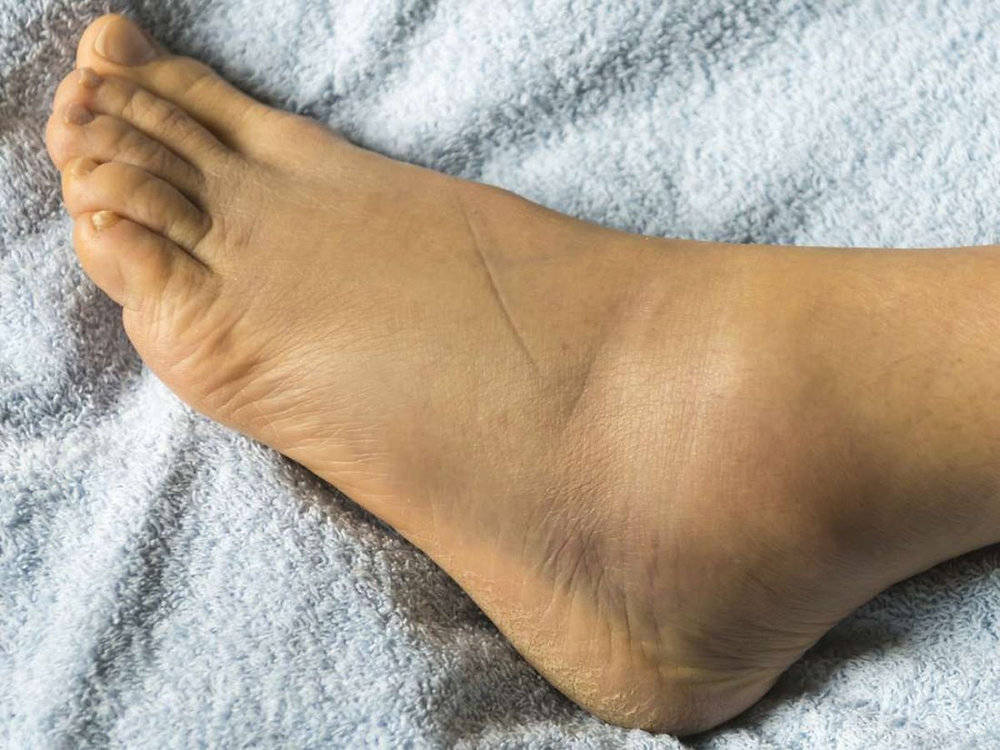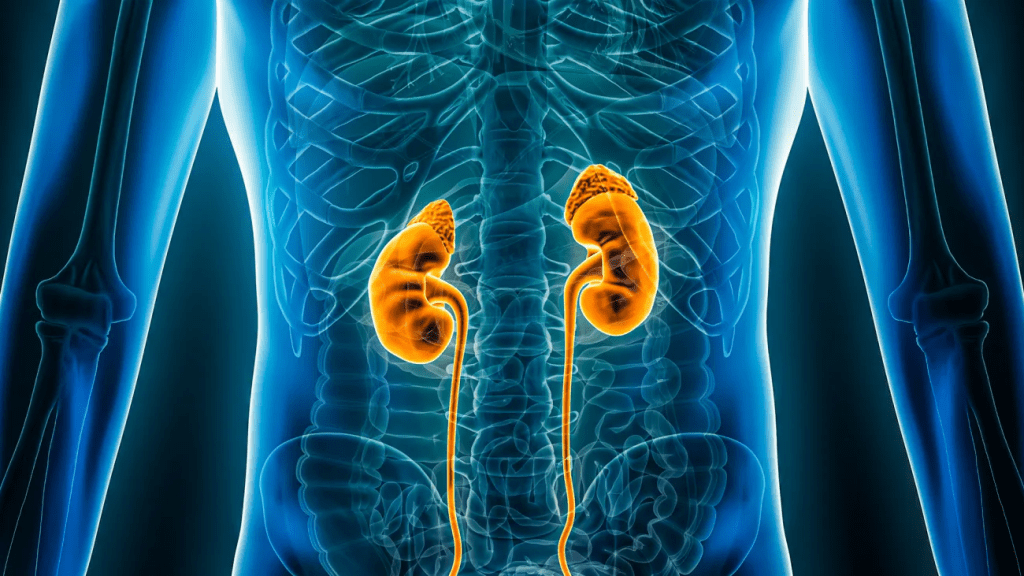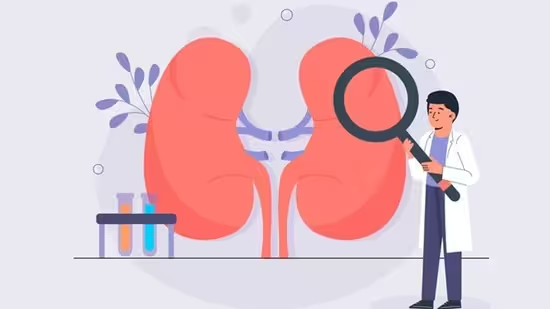Kidney failure is a silent but dangerous condition that can progress over time if left untreated. It affects the kidneys’ ability to filter waste and maintain essential bodily functions, putting your overall health at serious risk. Recognizing the early warning signs of kidney failure is crucial because ignoring them could result in irreversible damage, leaving dialysis or a kidney transplant as the only treatment options.

1. Discolored Urine: A Key Indicator of Kidney Health
Your urine can tell you a lot about your kidney health. Since the kidneys are responsible for removing waste and excess fluids, any abnormalities in urine color, smell, or frequency may signal a problem. Be cautious if you notice:
- Frequent urination, especially at night.
- Blood in your urine.
- Foamy or frothy urine.
- Unusual discoloration, such as red, brown, or greenish hues.
These signs might indicate declining kidney function, making it essential to consult a healthcare professional as soon as possible.
2. Difficulty Sleeping or Sleep Apnea
Struggling to get a good night’s sleep could be another hidden sign of kidney failure. The buildup of toxins in your bloodstream due to poor kidney function can make it difficult for your body to relax. Many people with kidney disease also report:
- Tossing and turning at night.
- Loud snoring or sleep apnea, where breathing stops temporarily during sleep.
- Waking up frequently feeling restless.
While these symptoms are often overlooked, they could point to underlying kidney issues.
3. High Blood Pressure: A Dangerous Cycle
The relationship between your kidneys and circulatory system is deeply intertwined. When your kidneys aren’t functioning properly, they struggle to regulate blood pressure, leading to hypertension. Conversely, chronic high blood pressure can damage the tiny nephrons in your kidneys, creating a dangerous cycle. If you have persistent high blood pressure, it’s crucial to monitor your kidney health.
4. Back Pain: More Than Just a Strain
Persistent back pain, especially around the lower ribs or groin area, could indicate kidney failure. Unlike typical muscle strain, back pain linked to kidney issues may come with:
- Fatigue.
- Nausea or vomiting.
- Fever or chills.
- Frequent urination.
These symptoms should not be ignored, as they may signal serious kidney problems that require immediate attention.
5. Swollen Ankles and Feet

Swelling in the ankles, feet, or hands is a common symptom of kidney failure caused by sodium retention. When the kidneys are unable to properly remove excess fluids, they accumulate in the body, leading to noticeable swelling. If this swelling persists, it’s time to seek medical advice.
6. Shortness of Breath: A Lesser-Known Symptom
Feeling short of breath after minimal physical exertion could be a sign that your kidneys are struggling. Poor kidney function can lead to fluid buildup in the lungs or anemia, both of which cause breathing difficulties. If you frequently find yourself gasping for air, it could be time to evaluate your kidney health.
7. Bad Breath or Metallic Taste
Bad breath, also known as “uremic breath,” is another warning sign of kidney failure. When toxins build up in the body due to impaired kidney function, they can cause a metallic taste in the mouth or foul-smelling breath. This condition occurs because the kidneys can no longer effectively eliminate waste products.
8. Itchy and Dry Skin

Healthy kidneys help maintain your skin’s natural balance by removing toxins and supporting red blood cell production. However, as kidney function declines, toxins can accumulate in the bloodstream, leading to:
- Persistent itchiness.
- Dry or peeling skin.
- Rashes or irritation.
While these symptoms might seem minor, they could indicate a larger problem with your kidney health.
What Causes Kidney Failure?
Kidney failure occurs when the kidneys lose their ability to filter waste, stabilize electrolytes, and regulate fluid levels. It can result from various factors, including:
- Reduced Blood Flow to the Kidneys: Heart disease, severe burns, or sepsis can limit blood flow to the kidneys, causing damage.
- Obstruction of Urine Flow: Kidney stones, tumors, or an enlarged prostate can block urine flow, leading to kidney failure.
- Underlying Health Conditions: Diabetes, high blood pressure, and autoimmune disorders like lupus are common contributors to chronic kidney disease.
- Infections and Toxins: Severe infections or exposure to heavy metals and medications can damage kidney function over time.
Chronic Kidney Disease vs. Acute Kidney Failure

Kidney failure can develop either suddenly (acute) or over an extended period (chronic). Understanding the differences between the two is essential for effective diagnosis and treatment.
Acute Kidney Failure
- Causes: Often triggered by trauma, severe infections, or certain medications.
- Symptoms: Rapid onset of reduced urine output, swelling, and confusion.
- Treatment: Reversible if addressed promptly, often requiring fluid management or medications.
Chronic Kidney Disease
- Causes: Typically develops due to long-term conditions like diabetes or hypertension.
- Symptoms: Slow progression with stages that include fatigue, swelling, and high blood pressure.
- Treatment: Managed through diet, medications, and, in advanced stages, dialysis or transplantation.
Why Ignoring Kidney Failure Can Lead to Dialysis
When kidney disease progresses to its final stage (chronic kidney failure), the kidneys can no longer filter waste from the blood. At this point, dialysis becomes a necessity to prevent life-threatening complications. Dialysis involves using a machine to filter waste and maintain the body’s fluid balance—a process that can be physically and emotionally demanding.
Early detection and intervention are critical to avoiding this outcome. If you notice symptoms like those listed above, consult a healthcare provider immediately.
How to Protect Your Kidneys

Protecting your kidneys doesn’t require drastic measures—simple lifestyle changes can go a long way. Here’s how to reduce your risk of kidney failure:
- Stay Hydrated: Drink plenty of water to help your kidneys flush out toxins.
- Monitor Blood Pressure and Blood Sugar: Keep these levels in check to prevent long-term damage.
- Eat a Kidney-Friendly Diet: Limit salt, sugar, and processed foods. Opt for fresh fruits, vegetables, and whole grains.
- Avoid Overuse of Medications: Over-the-counter pain relievers like ibuprofen can harm your kidneys when used excessively.
- Exercise Regularly: Physical activity improves circulation and helps maintain kidney health.
- Quit Smoking: Smoking reduces blood flow to the kidneys and accelerates damage.
Conclusion: Don’t Ignore the Warning Signs
Kidney failure is a serious condition, but it doesn’t have to result in lifelong dialysis if caught early. Paying attention to signs like discolored urine, swelling, back pain, or itchy skin could make all the difference. By recognizing these symptoms and taking proactive steps to maintain kidney health, you can prevent further complications and protect your overall well-being.
Remember, your kidneys work tirelessly to keep your body functioning—don’t wait until it’s too late to return the favor. Take charge of your health today and consult a professional at the first sign of trouble.


